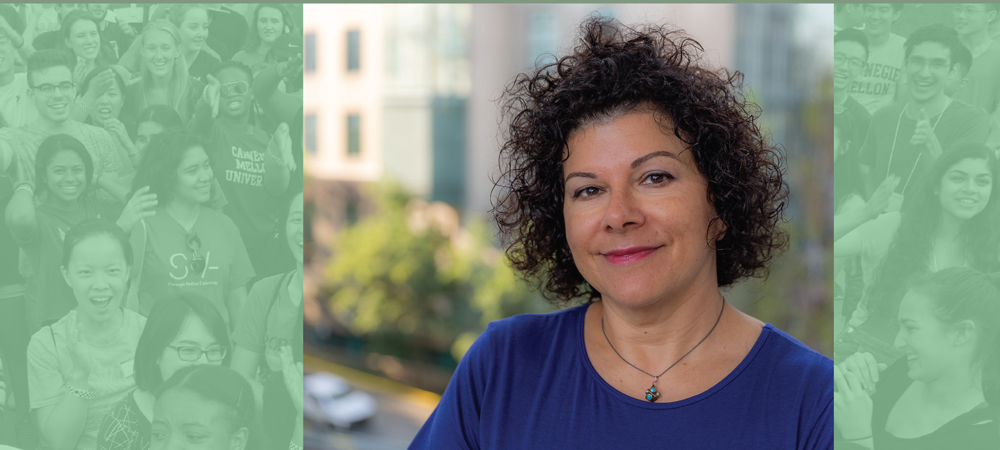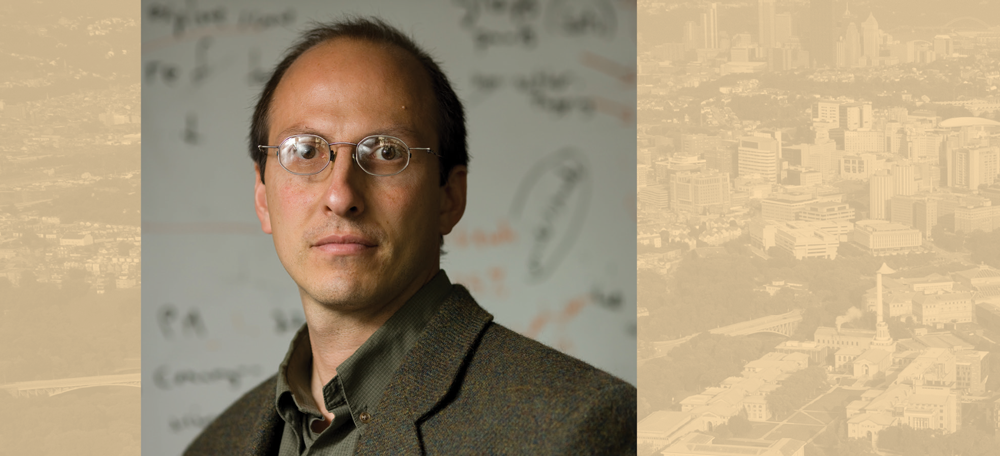SCS IN THE NEWS

FORLIZZI NAMED ASSOCIATE DEAN OF DIVERSITY, EQUITY AND INCLUSION FOR SCHOOL OF COMPUTER SCIENCE
Aaron Aupperlee
Jodi Forlizzi will lean on her background as a designer to address what she called “a truly wicked problem” in her role as the inaugural associate dean of Diversity, Equity and Inclusion in the School of Computer Science.
“I’m trained as a designer, and many systemic design practices apply to this work,” said Forlizzi, the Charles M. Geschke Director of the Human-Computer Interaction Institute since 2017 and faculty since 2000.
“We can start by making small changes that could have great impact.” Forlizzi helped initiate some of those changes in her work as the Diversity, Equity and Inclusion lead for the school. Under her guidance, SCS has started documenting important processes including those for hiring, onboarding, offboarding, reviews, promotions, and award and committee selections. The school has also gathered and centralized outreach activities to better coordinate and update them as needed.
Forlizzi has also led the charge to create a Broadening Participation in Computing Plan and expand the number of GEM fellowships to increase the participation of underrepresented groups at graduate levels in engineering and science.
“We’ve been chipping away at it steadily, but DEI work is slow. It’s incremental, and sometimes it takes a long time for any one action to have an impact.” Forlizzi said.
Among her first tasks will be to prioritize the work of Carol Frieze, the former director of the Women@SCS and SCS4All programs. Frieze recently retired, and Forlizzi does not want her work to fade. Additionally, Forlizzi sees a need to expand mentorship opportunities for the diverse cadre of faculty, staff and students the school hopes to attract.
Forlizzi’s appointment comes at a time when the spotlight is on institutions to react against racism. Wanda Heading-Grant recently started as CMU’s chief diversity officer and vice president for Diversity, Equity and Inclusion, and schools across campus are appointing associate deans of DEI. Forlizzi said the unsettled nature of the U.S., with protests, rallies and calls for social justice, suggests that conditions are ripe for radical change.
“Now is the time for action,” Forlizzi said.
Martial Hebert, the dean of the School of Computer Science, said the unsettled nature of the country and the calls for action are reminders of the importance of this work. He said improving diversity, equity and inclusion is a major priority for both the school and the university, and Hebert is confident Forlizzi is up to the task.
“She’s enthusiastic about the topic, and it has always been important for her,” Hebert said. “But it’s not just one job or one person. It’s changing and evolving the practices at the school. What really makes a difference is to have the school change, to have all of us change.”
Forlizzi earned a self-defined Ph.D. in human-computer interaction in 2007 and a master’s degree in interaction design — both from CMU. Her bachelor’s degree is in illustration from the University of the Arts in Philadelphia. Forlizzi was elected to the Association for Computer Machinery’s CHI Academy for her significant, cumulative contributions to the development of the human-computer interaction field. In 2020, Forlizzi was named an ACM fellow.

JESSICA HAMMER NAMED HCII INTERIM ASSOCIATE DIRECTOR
Aaron Aupperlee
Award-winning game designer Jessica Hammer will level up as she takes on the role of interim associate director of the Human-Computer Interaction Institute in the School of Computer Science.
"We are lucky to do exceptional research and teaching at the HCII. Even better, we get to combine the two to shape the future of human-computer interaction,” said Hammer, the HCII's Thomas and Lydia Moran Assistant Professor of Learning Science. “I want to make sure that all members of our community — from our first-year undergraduates to the most senior faculty — can contribute to this mission."
Hammer, who has often learned the hard way how to develop a game to meet its vision, said that her training will help her make sure the department’s practices and organizations are best suited to meet its goals.
“I want to help create a department where our work is not just impactful, but also joyful,” Hammer said. Hammer will take on the new role while the HCII’s current director, Jodi Forlizzi, transitions to her position as the associate dean for Diversity, Equity and Inclusion in SCS and reduces her duties as department head.
“I have enormous respect for everything Jodi has accomplished as director of the HCII. She has helped us get through globally challenging times and has empowered others in the department to learn to lead from her,” Hammer said. “We will be conducting a search for a new director, and part of my role as associate director will be providing leadership continuity to the department. I'd like to help the new director quickly master the basics of the job, so they can move on to reinforcing what's already great at the HCII and figuring out where they can help us grow.”
Hammer holds a joint appointment with CMU's Entertainment Technology Center. She earned her B.A. at Harvard University, her M.S. from the NYU Interactive Telecommunications Program and her Ph.D. in cognitive studies at Columbia University.

CARNEGIE MELLON, HEINZ ENDOWMENTS LAUNCH CENTER FOR SHARED PROSPERITY
SCS Professor Illah Nourbakhsh Will Serve as Inaugural Executive Director
Carnegie Mellon University and The Heinz Endowments announced a sweeping initiative to leverage the university's internationally recognized strengths in applied research to address longstanding barriers to equity and foster economic empowerment in the greater Pittsburgh region. The Center for Shared Prosperity aims to create a sustainable and replicable model for community-university collaboration, with a focus on deploying solutions for socioeconomic inequities and making measurable progress toward greater economic prosperity and overall well-being of residents.
“Through its unique model of collaboration in which community members and university faculty and staff work together as peers, and the development and distribution of social and technological innovations with real-world applications, the center will help to dismantle barriers to shared prosperity and equity,” said Illah Nourbakhsh, the K&L Gates Professor of Ethics and Computational Technologies in the Robotics Institute, who will serve as the center's inaugural executive director. “The Center for Shared Prosperity will be laser-focused on creating direct, sustainable impact on Pittsburgh by bringing research into practice.”
The Heinz Endowments has committed $30 million over six years to fund the creation and launch of the center, as well as support for initial real-world projects identified by community partners. The grant, the largest in The Heinz Endowments' history, includes funding to develop, pilot and scale region-wide interventions to identify and address structural barriers to access and opportunity. A portion of the grant will establish an endowment to support the center’s work in perpetuity.
“As a university- and community-wide effort, the Center for Shared Prosperity will apply a comprehensive methodology to CMU’s engagement across Western Pennsylvania and will leverage our unique expertise to help residents benefit from the innovation economy,” said Farnam Jahanian, CMU president. “The Heinz Endowments and CMU have worked together for decades on projects that support Pittsburghers, and this new initiative will expand our community collaborations at a particularly critical moment. With both the pandemic and the rapid pace of technological change contributing to a widening opportunity gap, the solutions proposed through the Center for Shared Prosperity will help our region address societal barriers and will also serve as a model that can be replicated in communities across the country. We are grateful to The Heinz Endowments and its board for their generous support and partnership.”



